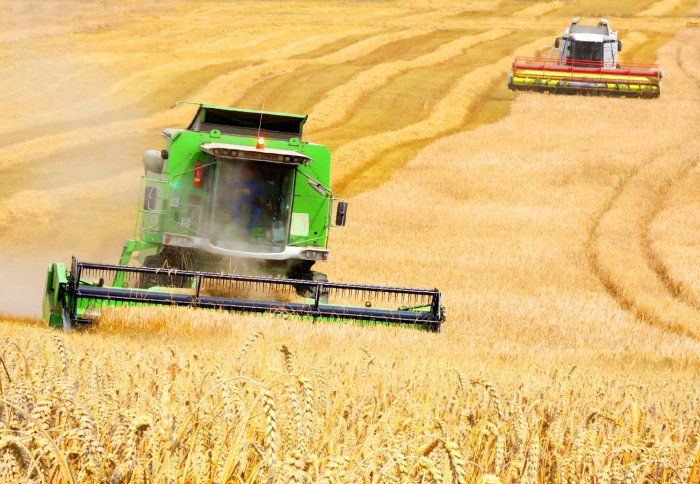Researchers to investigate creating new plastics from old straw

Imperial scientists are joining a European consortium that will assess how waste agricultural products can be used to make biodegradable packaging.
The ADMIT BioSuccInnovate Consortium will investigate the use of agricultural wastes and residues, such as wheat and maize straw - as well as low-maintenance energy crops Elephant grass and willow - as the raw materials to produce biosuccinic acid, a chemical building block used in producing bioplastics.
To move forward with bioplastics, we need to investigate cheap, readily available and sustainable alternatives that are also economically viable and socially acceptable.
– Dr Jeremy Woods
The consortium is aiming to produce biodegradable packaging for consumer markets, in association with the UK retailer Waitrose and food tray producer Sharpak. In addition, it will create a toolkit called the Integrated Sustainability Assessment Tool (ISAT). This should help industries get to grips with the techno- economic issues associated with products made from the agricultural waste streams, as well as understanding the environmental impacts across the whole of a product’s life cycle.
Dr Jeremy Woods from the Centre for Environmental Policy at Imperial is leading work that will underpin the toolkit. His group will deliver a holistic life cycle assessment of the bioplastics, including technico- economic issues, from crop propagation through to the production and disposal of the bioplastics.
Working in collaboration with LCAworks Ltd and the University of Geneva, they will evaluate opportunities to develop smarter and more efficient ways to produce the feedstocks for biosuccinic acid production, such as integrating different crops. They will also look at land management practices to see if they can improve the resilience of farming to climate change.
The researchers believe this work is necessary to ensure that bioplastics are a commercially viable and environmentally acceptable option and can be more widely used.
Innovating bioplastics
The environmental drive to move away from plastics made from fossil fuels has over the past few years generated a number of innovations in bioplastics, including the process of extracting the biosuccinic acid building blocks from corn and wheat grain. However, the high hopes for commercial exploitation of this process foundered, as these raw materials were already in demand in the food and animal feed industries, leading to concerns about competition.
Says Dr Woods: “To move forward with bioplastics, we need to investigate cheap, readily available and sustainable alternatives that are also economically viable and socially acceptable. Our ISAT toolkit will support the continuous development of sustainable production practices for biosuccinium production within the EU member states, and ultimately increase the viability of farming whilst reducing the amount of plastic produced from fossil fuels.”
“This project is an excellent example of the kind of ‘whole-systems’ thinking that is needed if we are going to move to more sustainable ways of using the land, and at the same time mitigate and adapt to climate change.”
Funded by the European Institute of Innovation & Technology (EIIT) the Consortium is an initiative of the Climate-KIC, Europe’s largest public-private partnership which focuses on innovative ways to mitigate climate change.
The consortium partners include the Institute of Biological, Environmental and Rural Sciences (IBERS) at Aberystwyth University, French biorefining company CIMV and Reverdia, based in the Netherlands, which will contribute its Biosuccinium™ sustainable biosuccinic acid technology to the project.
Article text (excluding photos or graphics) © Imperial College London.
Photos and graphics subject to third party copyright used with permission or © Imperial College London.
Reporter
Laura Gallagher
Communications Division